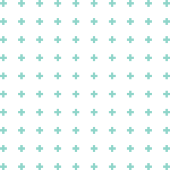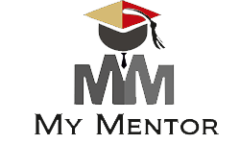| 10. Visa Process |
1. When you can apply?
You can apply for a study visa if you are planning to come to Ireland to undertake a course of study for more than 3 months. You can apply for a study visa up to 3 months before your date of travel to Ireland. If you are visiting another State prior to travelling to Ireland, you must have the relevant visa for that State in your passport before applying for an Irish visa.
2. How to apply?
You must apply online for a visa. When you have completed the online application process, you must follow the instructions on the summary application form that is created by the online system. The summary form will contain information on where you are to submit your supporting documentation. The summary form which you must print, sign and date must be submitted with your supporting documentation. You may be required to provide your Bio metrics information as part of the application process.
A guide to supporting documentation is set out below.
Important: Do not include false or misleading information or documents in your application. If you do, your application may be refused. In some circumstances, you may not be allowed to appeal the visa decision and may be blocked from getting an Irish visa for 5 years.
3. Fees
You may be required to pay additional charges e.g. relating to the submission of your documents.You may be able to pay the fee in local currency. The website of the Visa Office/Embassy/Consulate will have details about additional charges and local payment options.
4. How long it will take
Applications are processed in date order. You are advised not to purchase travel tickets before you know the outcome of your visa application. Processing times can vary between countries. They can also vary during high volume periods during the year. However, you can generally expect a decision within 8 weeks from the date on which your application is lodged at the Visa Office/Embassy/Consulate.
Your application may take longer if e.g. you have not submitted all necessary supporting documentation, your supporting documentation needs to be verified or because of your personal circumstances (e.g. if you have a criminal conviction).
You can check the processing times for the Visa Office/Embassy/Consulate that is handling your application on their website.
If your application is being processed by the Visa Office, Irish Naturalisation and Immigration Service, Department of Justice and Equality, 13-14 Burgh Quay, Dublin you can check the date of the applications currently being processed on the Visa Decision page.
5. Conditions associated with a study visa
You are advised to familiarise yourself with the policy on non- EEA nationals studying in Ireland and the conditions applying to such students who are permitted to enter the State before you make your visa application.
6. Supporting documentation
The documents below are important because they provide information about your personal circumstances in the country from which you are applying. The onus is on you to satisfy the Visa Officer that a visa should be granted for the purpose sought. The submission of any or all of these documents does not guarantee that your application will be successful. Original documents must be provided.
If you submit a document that is not in English/Irish, it must be accompanied by a full translation. Each translated document must contain:
- Confirmation from the translator that it is an accurate translation of the original document;
- The date of the translation;
- The translator’s full name and signature; and
- The translator’s contact details.
All letters submitted by a business, company or other organisation should be on official headed paper and give full contact details so that they can be verified. These must include a full postal address, name of contact, position in the organisation, telephone number (landline), website, and email address (email addresses such as Yahoo or Hotmail are not accepted).
The Visa Officer considers each application on its merits and may request additional information or documentation.
|
GUIDE TO SUPPORTING DOCUMENTATION
Your signed and dated summary application form and the appropriate fee (where applicable) must be accompanied by the supporting documents set out below.
If you do not submit the required documentation your application may be refused on the basis of insufficient documentation.
|
- Two color passport sized photographs not more than 6 months old.
- Your name and visa application reference number must be printed clearly on the back.
|
- Your current passport and a full copy of all previous passports.
- Your current passport must be valid for at least 12 months after your proposed date of arrival in Ireland.
|
|
A signed letter of application including your full contact details:
- Outlining your reason for wanting to come to Ireland.
- Giving details of any members of your family who are currently in Ireland, or any other EU Member State,
- Undertaking that you will observe the conditions of your visa, that you will not become a burden on the State, and that you will leave the State on the expiry of your permission to remain, and
- Where the course you now wish to study does not naturally follow on or relate to your educational/employment history, giving valid reasons, supported by documentary evidence (where available), for this change.
|
|
Evidence that you are enrolled on a privately funded course
You must submit a Letter of Acceptance from the college:
- Confirming that you have been accepted and enrolled on a course of full-time education, involving a minimum of 15 hours organised daytime tuition each week.
- Giving details of the course that you will be studying.
- Stating the amount of fees payable for your course.
- Stating the amount that has been paid.
- If the college has taken out medical insurance on your behalf, stating that the college has done so.
Note: Where the course fees are less than €6,000 fees must be paid in full to the college prior to applying for your visa. Where the course fees are in excess of €6,000 you must pay at least this amount prior to applying for your visa and evidence of this should be shown in your Letter of Acceptance. This minimum amount is an Immigration requirement. However, the college you wish to attend may require full payment of fees.
|
|
Evidence accounting for any gaps in your educational history
- You must provide information to account for any gaps between your last period of full time education and your application to study in Ireland.
- If any such gap in education has been filled by periods of employment, you must give full details of your employment history.
|
|
Evidence fees have been paid to college
You must provide a copy of an Electronic Transfer of Funds (ETF) to the Irish Bank of the college, showing details of the beneficiary’s name, address, bank details and the same details for sender.
or
A valid receipt showing that the course fees have been lodged to an approved student fees payment service e.g. the electronic fee payment service offered by Pay to Study (formerly International Student Payments Service, (ISPS).
|
|
Evidence that you have the academic ability to follow your chosen course
- You must provide evidence that you have the ability to follow your chosen course e.g. exam results, qualifications.
|
|
Evidence of your level of English
- Except in the case of an application which is solely for an English language course, you must show that you have the capacity to fully partake in your chosen course through the medium of English and satisfy the Visa Officer in this regard.
- As an exception, if you are doing a degree taught in Irish, evidence of your level of Irish should be supplied instead. This should include a written statement from the college setting out the manner in which it has assessed your ability to speak and write in Irish.
|
|
Finances
- You must show that you have sufficient funds to support your stay in Ireland without recourse to public funds, or the reliance on casual employment.
|
|
Private Medical Insurance
Private Medical Insurance cover is required. Your college may arrange this on your behalf. If so, details of this must be included in your Letter of Acceptance from the college. If it is not arranged by the college, you must organise this yourself and provide evidence with your application.
|
|
Previous Visa Refusals
- If you have been refused a visa in the past for any country, you must provide the details.
- The original letter issued to you by the authorities of that country must be provided with your application.
- Not disclosing any previous visa refusals will result in your application being refused.
|
7. Additional documentation for unaccompanied students under 18 years
Birth certificate
The child’s birth certificate must be submitted with their application.
Consent of parent /legal guardian
Parental consent from both parents/legal guardians is required.
This consent must be a notarized document, providing full details of the person in whose care the minor shall be in during their stay in Ireland and confirming.
- The parents/legal guardians agreement to the child coming to Ireland for study purposes.
- That the school/host family/education agency is the legal guardian of the unaccompanied child student during the child’s stay in Ireland.
- Copies of the bio metric page of the parents/guardians passports or national identity cards showing the bearer’s signature must also be provided.
- Where only one parent has total custody, a Court Order bestowing sole custody of this child must be submitted.
Accommodation and vetting certificate
- The address of where the student will stay while in the State as a student must be submitted.
- In the case of a boarding school student a letter from the school confirming that it will provide all necessary accommodation is also required.
- In the case of a child who is to attend a school as a day pupil and live with a family, the name and address of the responsible adults with whom they will stay are also required.
- Where the child is residing with a host family other than relatives, clearance from the Garda Síochána (the Irish Police) in respect of that family is required. Documentary proof of this must be submitted as part of the visa application.
- No entitlement on the part of other family members to accompany or join the student in the State.
- The granting of a visa to a person under the age of 18 years for the purpose of study does not give any entitlement to any other family member to accompany or join the student in the State.
8. Return of documents
- All documents accompanying your application must be originals.
- You should keep copies of all the documents that you provide.
- Original documents such as marriage/birth/death certificates will be returned to you. However, other documents such as bank statements or letters of invitation will not be returned.
- If there are particular documents that you wish to have returned, please provide a list of these documents with the application.
|



